
What’s The Difference Between Delta 8, 9, And 10 THC?
At this point, there are three known psychoactive THC cannabinoids—delta 8, 9, and 10. What are their similarities and differences, and how is each one produced? Furthermore, which one is best for you? Find the answers to these questions and more as we compare the three types of THC.
Once upon a time, “THC”, or delta-9-tetrahydrocannabinol, was the only cannabinoid of interest to cannabis consumers, despite there being over 100 different cannabinoids identified in the plant so far. That said, most cannabinoids have yet to undergo the scientific inquiry experienced by THC.
As we begin to understand the plant more, however, it is clear that delta-9 is not the only psychoactive cannabinoid in cannabis.
In fact, there are (as far as we know now) three main THC compounds that can be produced by the plant. These are delta-8-THC, delta-9-THC, and delta-10-THC. But what are the differences between them, and what effects do they produce? Let's dive in and see what we know about these compounds thus far.
Comparing delta-8, delta-9, and delta-10 THC
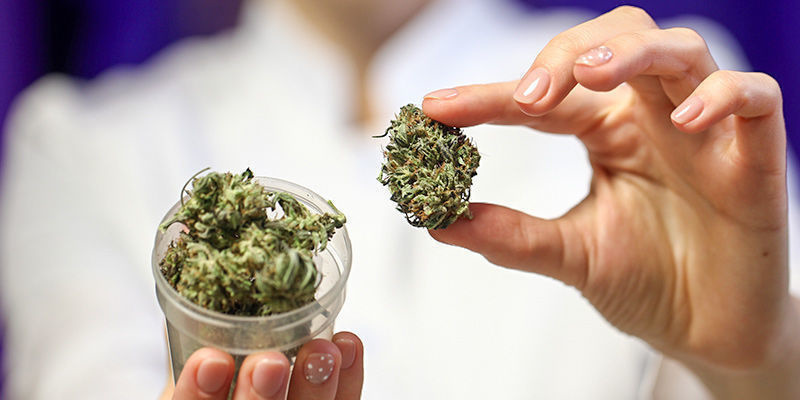
Though similar in many respects, each of these three compounds displays unique characteristics. Here is a brief overview:
-
Delta-8-THC is an isomer of delta-9-tetrahydrocannabinol. It is less psychoactive than delta-9, although it has similar properties. Indeed, it binds to the same cannabinoid receptors in the human body and brain, and can cause a “high”, elevate heart rate, stimulate euphoria, and induce tranquillity. In other words, it can be thought of as delta-9’s less-powerful cousin.
-
Delta-9-THC is the main psychoactive compound in marijuana. It is also one of only three cannabinoids to be scheduled internationally. As of 1964, thanks to the research of Israeli scientist Raphael Mechoulam, not only was delta-9-THC discovered and named, but it led researchers to posit the existence of a novel receptor system—the endocannabinoid system (ECS). Although it would take years for this system to be fully elucidated, Mechoulam found that, when smoked, tetrahydrocannabinol is absorbed into the brain, attaching itself to receptors associated with thinking, memory, pleasure, coordination, and movement.
-
Delta-10-THC is a (largely) synthetic isomer of tetrahydrocannabinol first developed in the 1980s. It has only rarely been reported as a naturally occurring element of the plant, as it appears in tiny quantities. It is, however, produced as an “impurity” in the production of synthetic delta-8-THC. It can also be synthesised directly from delta-9. Little has been recorded on the effects of delta-10-THC, but anecdotal reports point to energising, uplifting effects as opposed to the heavy relaxation associated with delta-9.
Chemical structure
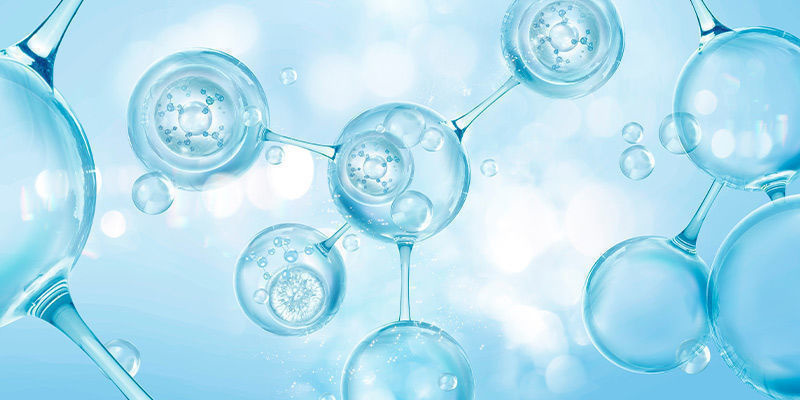
Looking at the chemical structure of each compound, we can start to understand how small differences have a big impact:
-
Delta-8-THC: Delta-8 is a tricyclic terpenoid. While it has the same chemical formula as delta-9, one of its carbon double bonds is in a different position. The reason it is less psychoactive than delta-9 is because it is a partial agonist of both CB1 and CB2 receptors, and thus binds to such receptors less efficiently than its “cousin”. While it can be derived from cannabis in small quantities, the compound can also be produced in abundance in a lab setting by exposing CBD to acids and heat.
-
Delta-9-THC: It may share the same formula as delta-8, but a slightly different molecular structure makes delta-9 a stronger agonist of CB1 receptors in particular, resulting in more profound psychoactive effects. Delta-9-THC is the decarboxylated form of THCA, which is a cannabinoid acid that exists in raw cannabis plants. Delta-9 has been studied somewhat extensively for its therapeutic potential, and has been approved for medical use in certain scenarios. Although, there is still a lot we don’t know about this compound.
-
Delta-10-THC: Like delta-8, delta-10-THC is an isomer of delta-9—meaning all three share the same chemical formula, but different molecular arrangements. Very little is known about its effects, and there are no clinical studies on the safety of delta-10-THC. Discovered by Mechoulam in the 1980s, it was at first unusable because its extraction required the addition of toxic chemicals, leaving the final product unsafe for human or animal consumption. It is also one of the most elusive cannabinoids, and so far hard to extract, certainly in commercially viable quantities.
Key similarities and differences

There are a few notable similarities and differences between the three types of THC. The first and most obvious similarity is that all three are psychoactive, but to somewhat significantly different degrees.
Moreover, all three must undergo a chemical reaction to be created. In the case of delta-9, this involves decarboxylating (i.e. heating) raw cannabis plant material to turn non-psychotropic THCA into activated THC. For delta-8 and 10, both are most often created by applying chemicals to existing cannabinoids, such as CBD.
Beyond this, it's been noted that delta-8 is about half as powerful as delta-9. It also appears to be more stable than delta-9, which can degrade over time into CBN. This gives delta-8 a longer shelf life. Delta-10 appears to create more euphoric sensations than the other two.
Delta-9 is the only one of the three THC compounds that has been regulated widely. The other two exist in grey areas of the law.
Extraction
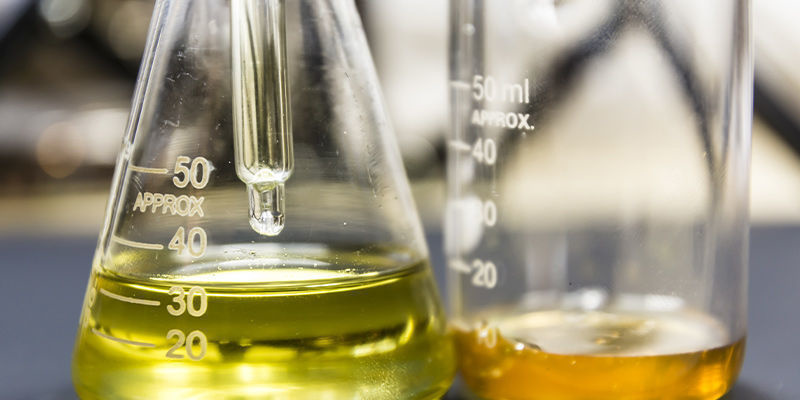
Delta-8 and 10 are extracted from CBD, which chiefly comes from hemp. Different chemicals and processes are then applied to create them. By definition, this has made delta-8 and 10 controversial. In the United States, because they are extracted from hemp, there have been repeated efforts to claim that neither are “narcotics”. This has been a widely unsuccessful campaign. In the eyes of both law enforcement and public health authorities, all three are psychoactive narcotics.
As mentioned, delta-9-THC is extracted from the cannabis plant in the form of THCA, which is then heated to become THC.
Mechanism of action
All three bind with both CB1 and CB2 receptors, though their affinity varies significantly. Delta-9 seems, so far at least, to interact with both receptors the best. While both delta-8 and delta-10 have roughly the same chemical composition and mechanism as delta-9, their effects have been noted to be significantly less strong or efficient—in fact, studies have found a potency ratio of between 1:2 and 2:3 for delta-8 and delta-9 (Hollister & Gillespie, 1973).
Effects

Delta-9 is, by far, the most powerful version of THC. Given its reduced potency, delta-8 is often considered a milder version of delta-9, while delta-10 is considered to have a slightly different effects profile than the other two—that is, one that’s more energising and euphoric. Beyond this, the lack of studies on two of the three cannabinoids means we simply don’t know the full scope of effects offered by delta-8 and 10.
Safety
The entire psychoactive safety debate is still one that cannot be answered. Delta-9-THC exhibits generally low toxicity compared to other drugs, and is one of the mostly widely used psychoactive substances around the world. So, it stands to reason that the same can be said for delta-9's two analogues. However, given the fact that both delta-8 and 10 have to be extracted by chemical means other than heat, the process used to produce these compounds also determines their ultimate safety.
Legality

Delta-9-THC is the only one of the three that is formally regulated anywhere. The other two are on the radar in the US, but as of now are not regulated—certainly not on a federal level, and in fact not even in states where recreational reform has already swept through. As a result, some of these products are sold by exploiting legal grey areas—although some jurisdictions have cracked down on this already.
In Europe, all forms of THC are likely to be designated as “narcotics”, though so far none have been specifically regulated except for delta-9. In general, delta-8 is far easier to find (and cheaper) than delta-10. That said, as the market expands, delta-10 will likely be increasingly mass-produced.
Consuming any of these THC compounds will definitely make you fail a drug test. They are all federally illegal in the US at the moment, as well as in Europe, except in the case of medical marijuana prescribed by a doctor.
Delta 8, 9, and 10: Which is best?
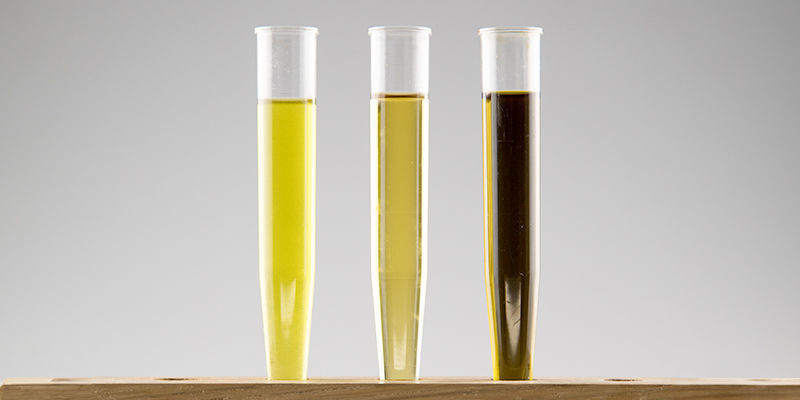
The question of which type of THC is “best” is one that cannot be answered, especially at this juncture. Few studies have been conducted on all three, and varying degrees of accessibility make it unclear just how consumers feel about each one.
However, knowing that they catalyse slightly different effects can be useful for consumers looking to experience different facets of the THC high. For example, those seeking more energy and less of a relaxing effect may opt for delta-10, while those looking for a heavy high may opt for delta-9. How and where they are used is a matter of individual preference, all other things being equal.
In any case, as we learn more about each version of THC, we can hopefully use this knowledge to make cannabis more accessible and versatile.
- Hollister, L. E., & Gillespie, H. K. (1973). Delta-8- and delta-9-tetrahydrocannabinol; Comparison in man by oral and intravenous administration. - https://doi.org
-
 7 min
9 March 2023
How Long Does THC Stay In Your System?
Cannabis can stay in your system long after your high has completely faded, meaning you can test positive on a drug test even if you haven't smoked in a while. We'll tell you about the different...
7 min
9 March 2023
How Long Does THC Stay In Your System?
Cannabis can stay in your system long after your high has completely faded, meaning you can test positive on a drug test even if you haven't smoked in a while. We'll tell you about the different...
-
 3 min
3 December 2021
What Is Delta-8 THC (∆⁸-THC)?
With so many cannabinoids in cannabis, it's only a matter of time before they're all thoroughly researched and utilised. With unique effects and potential benefits, one such cannabinoid that's...
3 min
3 December 2021
What Is Delta-8 THC (∆⁸-THC)?
With so many cannabinoids in cannabis, it's only a matter of time before they're all thoroughly researched and utilised. With unique effects and potential benefits, one such cannabinoid that's...
-
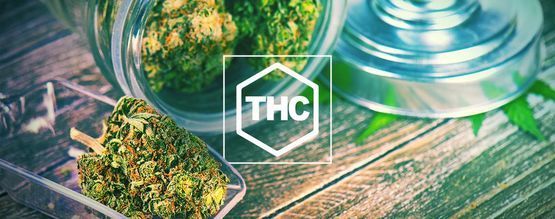 4 min
13 June 2019
Everything You Need To Know About THC
THC—this simple molecule inspires millions of people to grow cannabis every year. But what exactly is THC? And why do people love it so much?
4 min
13 June 2019
Everything You Need To Know About THC
THC—this simple molecule inspires millions of people to grow cannabis every year. But what exactly is THC? And why do people love it so much?
-
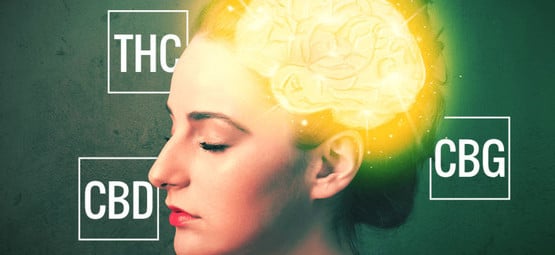 2 min
13 June 2019
CBD, THC & CBG - Exploring Cannabinoids
Cannabis contains over 480 active compounds, 80 of which are only found in cannabis. This is a lot of different variables that affect the body, and it partly why there is always new scientific...
2 min
13 June 2019
CBD, THC & CBG - Exploring Cannabinoids
Cannabis contains over 480 active compounds, 80 of which are only found in cannabis. This is a lot of different variables that affect the body, and it partly why there is always new scientific...














 United States
United States










